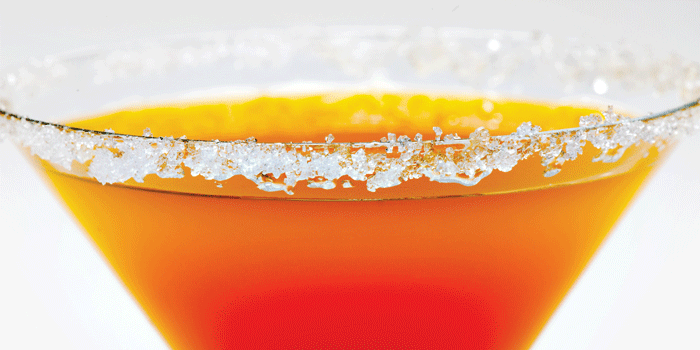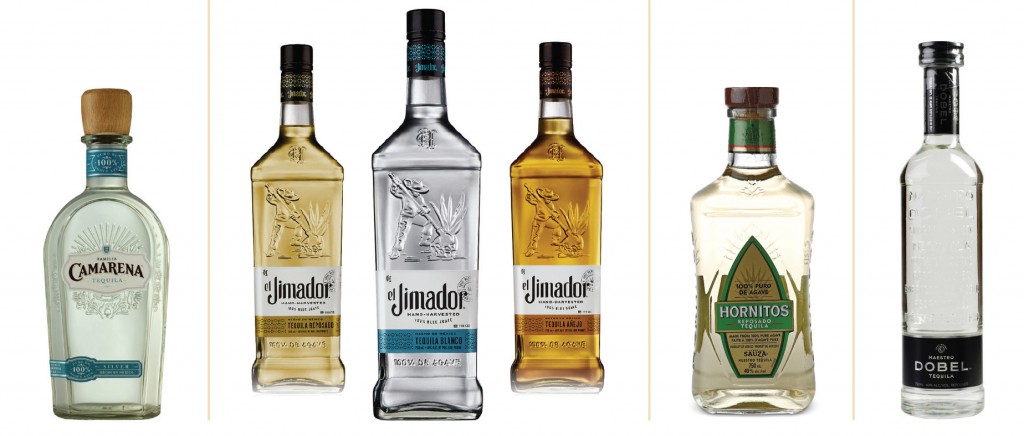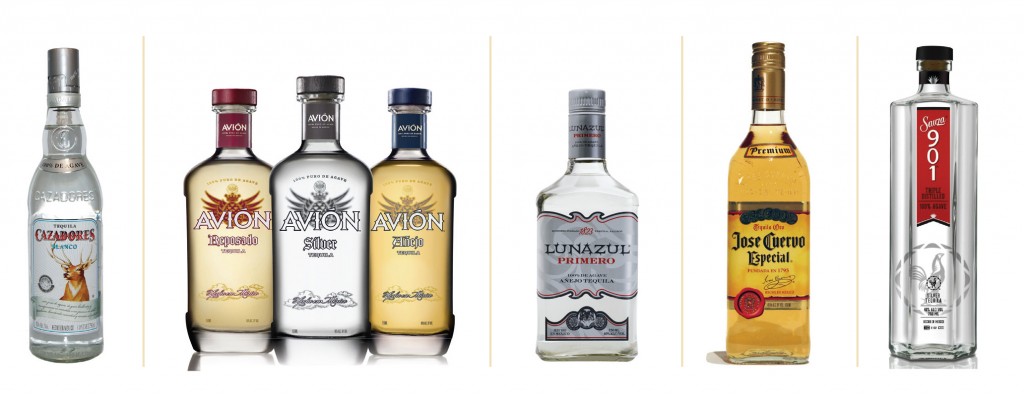There’s a mystique and romance surrounding tequila that few products enjoy. The import has captivated the imagination of the American drinking public, making it the fastest growing category of spirits in the country. As aficionados grow more discerning, distillers are responding by releasing the best and brightest their craft can produce – innovative offerings such as ultra-premium blancos, vintage-dated and single-estate bottlings and increasingly rarer and older añejos.
“I’m confident that in the foreseeable future tequila will challenge vodka as America’s spirit of choice,” contends Gary Shansby, founder and chairman of Partida Tequila. “Tequila has everything consumers are looking for in a spirit—body, texture, enticing aromatics, layers upon layers of sensational flavors and unlimited drink applications. Vodka simply can’t offer consumers the same enticements.”
Crafting great tequila is a labor- and time-intensive process. Agaves mature at their own pace, irrespective of demand. It takes the plant between eight and twelve years to reach maturity and optimally is harvested when the plant’s natural sugar content has peaked at about 21-25 brix. The agave thrives in rich volcanic soil, and a warm and dry climate. Cutting corners or speeding up the process may make financial sense, but it’s not how to make great tequila.
New Tequilas Launched
The unfettered growth of tequilas has left many consumers feeling overwhelmed. As of November 2014 there were 1,324 brands (“marcas”) of tequila being produced by 154 registered tequila distilleries. So in case you’ve missed the initial fanfare over their release, here is our take on new tequilas destined for the fast track. After all, nothing breeds success like success.
An excellent example is DeLeón Tequila, a super-premium brand handcrafted in the Los Altos Highlands from sugar-rich agaves. The blanco is double distilled, chill-filtered and bottled unaged. The brand’s reposado is matured two months in both charred, American white oak barrels and French oak casks, while the DeLeón Añejo is rested a minimum of 12 months.
According to Miguel Cedeño Cruz, master distiller of DeLeón Tequila, the brand is establishing a new standard of luxury. “Every step of the production process is taken to the next level in order to achieve the highest quality possible.”
Equally engaging is Tequila Villa Lobos 100% de Agave, a collaboration between Carlos Camarena, mastermind behind El Tesoro and Tequila Ocho, and Dale Sklar, renowned tequila expert. In addition to using estate grown agaves, the brand sports a few production twists.
Unlike most blanco tequilas that are bottled unaged, Villa Lobos Blanco is rested in stainless steel tanks for six months prior to bottling to allow the tequila’s constituent to fully integrate. Villa Lobos Reposado is also rested prior to being aged in American oak for 11 months. The brand’s añejo is aged for two years in charred, American oak barrels.
“We set out to make Tequila Villa Lobos the best tequila possible,” Sklar says. “We wanted the tequila to be soft and gentle. It’s a spirit that caresses the palate in almost a feminine way. Carlos Camarena is a true genius with a still.”
As it is with wine, the growing region where the agaves are cultivated and the tequila is made is a point of distinction between brands. Few better illustrate this point than Tierra Noble Tequila 100% de Agave, which is made at the highest distillery in the world, La Estacada. Located at 7,200 feet above sea level, the purity of the air, cool temperatures and soil composition all factor into the tequila’s overall character.
“The low temperatures slow down the fermentation process, and after eight days the must undergoes a second fermentation, better known as malolactic fermentation,” notes Alberto Herrera, master distiller and owner of Tierra Noble. “The cool, damp climate in our cellars slows maturation and adds to the complexity of the flavors and aromas.”
The brand is most ably represented by Tierra Nobel Reposado, which is matured in American white oak for up to 12 months, and Tierra Noble Añejo, which is aged in French and American white barrels for 24 to 30 months.
Newcomer Celestial Tequila is made from single-estate agaves grown by fourth-generation agave farmers in the famed Lowlands of Amatitán. In contrast to Tierra Noble’s temperate upbringing, growing conditions in the “valley terroir” are exceedingly warm and dry and the agaves grow in mineral-rich, red clay soil.
Crafted under the watchful eye of Master Tequilero Raul Garcia, Celestial Silver is bottled fresh from the still, while the Celestial Reposado is matured in charred, ex-Bourbon barrels for up to 11 months. The añejo spends a minimum of 18 months in American oak.
According to Bruce Milligan, vice-president of Tequila Celestial, the defining characteristic of the tequila is its brilliant agave character. “The very essence of the Lowlands is forward and present; bright, yet earthy like the flavor of freshly roasted agave. Celestial is made with care, passion and a true undying respect for nature and our environment.”
Jalisco is only one of the Mexican states that can produce tequila. Mi Casa 100% Agave Tequila is made from agaves grown on the Rodriguez family ranch in Michoacán, the only single-estate tequila exported from the region. Part of Mi Casa’s character is due to the agave’s unusually high sugar content, which averages 30%-35% brix.
“There is nothing that affects the quality of a tequila more so than the quality of the agave you use to make it,” contends Arthur Eli Rodriguez, patriarch of the Mi Casa Family. “We rest our blanco for at least six months, which softens the mouthfeel and finish of the spirit considerably.”
Mi Casa Reposado is aged for 10 months in barrels obtained from Heaven Hill. The añejo is matured up to 30 months in ex-Bourbon barrels.
New Arrivals
VIDA Tequila 100% Agave Azul is produced at Tequilera de Arandas with mature agaves cultivated for up to a decade in the rich soil of the Highlands. “We bake our agaves in brick ovens called hornos,” says brand owner Lisa Barlow. “The extracted juice is fermented and during the process we introduce oxygen into the fermenting wash, a practice designed to make the yeast work more efficiently. It also has the affect of giving the tequila a creamier, silkier textured body.”
The fermented juice—referred to as mosto—is distilled twice in the distillery’s stainless steel stills with only a small portion of each run actually making its way to a bottle.
Snifter-worthy VIDA Tequila Añejo is matured for two years in lightly-charred, French Limousin oak barrels. The reposado is aged for six months in ex-Bourbon barrels, while the blanco is left unaged.
Another newcomer is Campeón Tequila 100% de Agave Azul, a popular brand produced at Tequila El Viejito in the eastern Highlands. After harvesting, the agaves are brought to the distillery where they are steam cooked in brick ovens at low temperatures, a practice that ensures the starches in the agaves are fully metabolized into fermentable sugar.
“Campeón is stylistically crafted to be fruit forward and soft on the palate, highlighting the exceptional quality of our agaves,” notes John Palatella, president of The Legacy Group, producer of Campeón Tequila. “Our most laudable characteristic is the soft and subtle tannic structure of our tequila, which has no esophageal burn and balanced minerality.”
The range also includes Campeón Reposado, which is aged six to eight months in charred, American white oak barrels. The Campeón Añejo, which is barrel-aged for 16 to 18 months, makes it an excellent candidate for sipping after dinner.
From the Ansan Distillery comes an ultra-premium blanco called Tequila Baron Platinum 100% Puro de Agave. The savory blanco is produced from mature, 10-year-old agaves heavy with sugar. After fermentation, the wash is triple distilled in a traditional pot still. The tequila contains no additives or artificial flavoring and is gluten-free.
According to a company spokesman, Tequila Baron is able to achieve its clean taste without the use of glycerin or other additives. “The mature agaves are slowly cooked at low heat to assure the caramelization of all their sugar. Pot still distillation cooks off the volatiles and leaves only the heart of the distillation run. To assure consistency, a panel of experts sample each batch to confirm it matches the desired taste profile.”
The marketing propositions behind all-world El Luchador Organic Blanco 100% de Agave Tequila are crystal clear. The first is that the single estate agaves used to make the tequila are USDA and EU certified organic, meaning they were cultivated without the use of pesticides or synthetic fertilizers. The end result is a cleaner finished spirit.
The second is that artisanal El Luchador Tequila is bottled at a lip-tingling 110 proof. Water is used to dilute most tequilas to 80 proof. So the less water used to dilute the tequila, the more flavorful it will be. The flavors in El Luchador are vibrant, complex and thoroughly delicious, a glimpse into what tequila ought to taste like.
“Being among the first distill-proof tequilas to market gives El Luchador a distinct advantage,” states tequilero and Brand Owner David Ravandi. “Branding also plays an important role in distinguishing El Luchador as a truly artisanal product; one that isn’t just another brand extension, but a product with a truly unique identity and appeal.”
Regional Favorites
Lunazul Primero Añejo is aged for a minimum of 18 months in charred, American oak barrels. Here’s the twist. After the tequila has reached optimum maturity, its color is gently filtered out. The result is a tequila with pristine clarity and a curvaceous body.
“From a mixology point of view, Primero has everything you could want in an añejo—great taste and a beckoning bouquet—only no heavy color,” observes Reid Hafer, senior brand manager.
Among the most critically acclaimed brands to reach our shores is Crótalo 100% Agave Tequila. The ultra-premium range is handcrafted at Tequila Embajador in Atotonilco from organic agaves cultivated in the red volcanic soil of the Highlands. The aged marques grab most of the headlines.
Crótalo markets several different extra añejos. The Extra Añejo Reserva is first aged for three years in French Limousin oak barrels and then two more years in proprietary oak barrels, the insides of which have been charred. The brand’s 7-year Extra Añejo Gran Reserva is aged an additional four years in the proprietary oak. Finally, Crótalo Tres Marcos 3•5•7 is a blend of the 3-year French oak Extra Añejo, the 5-year Extra Añejo Reserva, and the 7-year Extra Añejo Gran Reserva.
According to Brand Owner Mark Carlston, he needed special permission from the CRT to create the extra añejos. “I believe the double-barrel aging process imbue Crótalo Extra Añejos with flavors and characteristics that are unmatched.”
Outfitted in beautiful, hand-painted ceramic bottles, Calavera Tequila 100% de Agave celebrates one of Mexico’s most revered holidays, Dia de los Muertos. The tequila is made by both artisanal techniques and state of the art techniques. For example, the agaves are cooked in brick ovens and stainless autoclaves, and then slowly fermented using naturally occurring yeasts. These limited release tequilas are double distilled in extremely small batches at Destiladora del Valle de Tequila. Both the blanco and the 4-6 month reposado are made from 100% Lowlands agaves, while the añejo, which is aged in American oak for 1-2 years, is crafted from a blend of Highland and Lowland agaves.
“Calaveras are small sugar skulls used to decorate the shrines of the dearly departed,” says Brand Owner James Robb. “The beautiful skull bottles are hand-painted by local artists. It’s a skill set passed down from generation to generation. Each bottle is unique with a focus on quality and fine craftsmanship – just like the tequila.”
As a brand, Muerto 100% Puro de Agave Tequila set out to offer an artisanal tequila at a reasonable price, according to Brand Owners Mike O’Hara and Ralph Bailey. “We like to say we offer a white collar product at a blue collar price.”
Muerto Plata is bottled straight from the still, while the Reposado is aged for a minimum of 7 months in Canadian white oak barrels. After harvesting, the agaves are scrutinized to ensure quality. Then they are milled and the juice is fermented over the course of seven days. The fermented wash is double distilled and subjected to rigorous filtration.
Muerto Tequila, like the other recent arrivals, is a handmade spirit, and as such it is different in taste and personality than the rest. With dozens of new tequila brands entering the marketplace every year, all that’s left to say is, “Welcome to America.”
Robert Plotkin is a judge at the San Francisco World Spirits Competition and author of 16 books on bartending and beverage management including Secrets Revealed of America’s Greatest Cocktails. He can be reached at www.AmericanCocktails.com or by e-mail at robert@barmedia.com.
When Celebrities Make Tequila
Celebrity-owned tequila brands are one of the fastest-growing trends in one of the fastest-growing spirits categories, and in many respects, celebrities are the perfect brand owners. For one thing, they bring fame and fortune to the table. If they have viable thoughts on how the product should be produced, so much the better. But those closest to these brands insist that the celebs bring a passion for the spirit that’s impossible to feign.
A sterling example is Casamigos 100% Agave Tequila, the owners of which are George Clooney, restaurant mogul Rande Gerber, and Discovery Land Company CEO Michael Meldman. According to general manager and COO David Gimpelson, the tequila was initially intended for personal use and to be shared only with family and friends.
“We set out to create the smoothest, best-tasting tequila, one with absolutely no burn,” Gimpelson says. “George and Rande worked closely with the master distiller and held many blind tastings until after five years the tequila was perfected.”
Sean “Diddy” Combs already owns a popular spirits brand—Ciroc Vodka—so recent news that he, along with spirits giant Diageo, purchased DeLeón 100% Agave Tequila surprised no one. But Combs has big plans for the tequila.
In addition to the base brand, DeLeón Platinum, which sells for $60 per 750ml, there will also be an ultra-premium range and a luxury line—priced between $150 and $850—sourced from the distiller’s private reserves.
It seems as long as spirits play a role in the nightlife, there will be celebrities who want to invest some of their cash.














